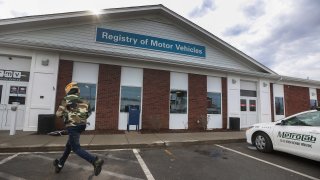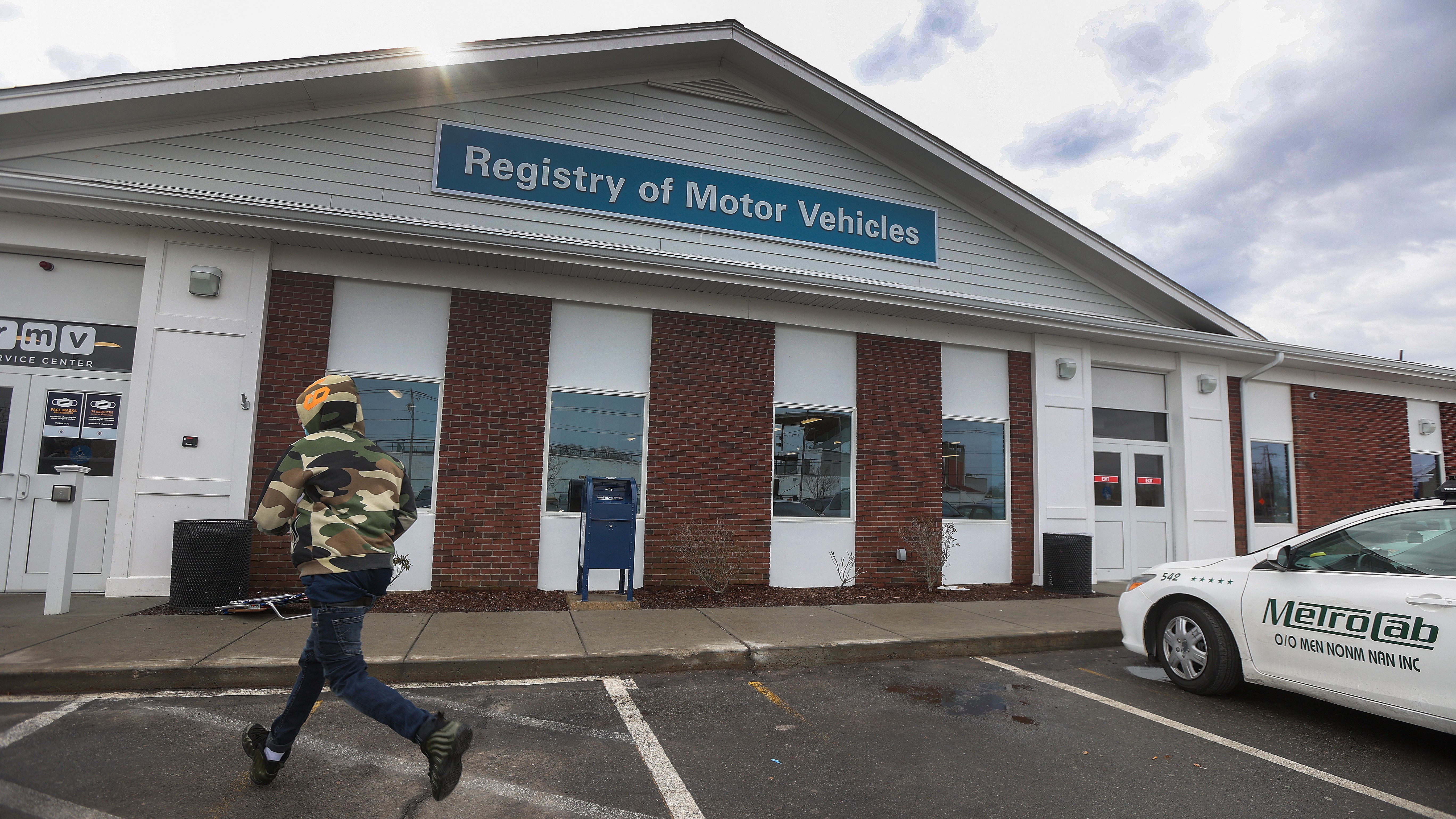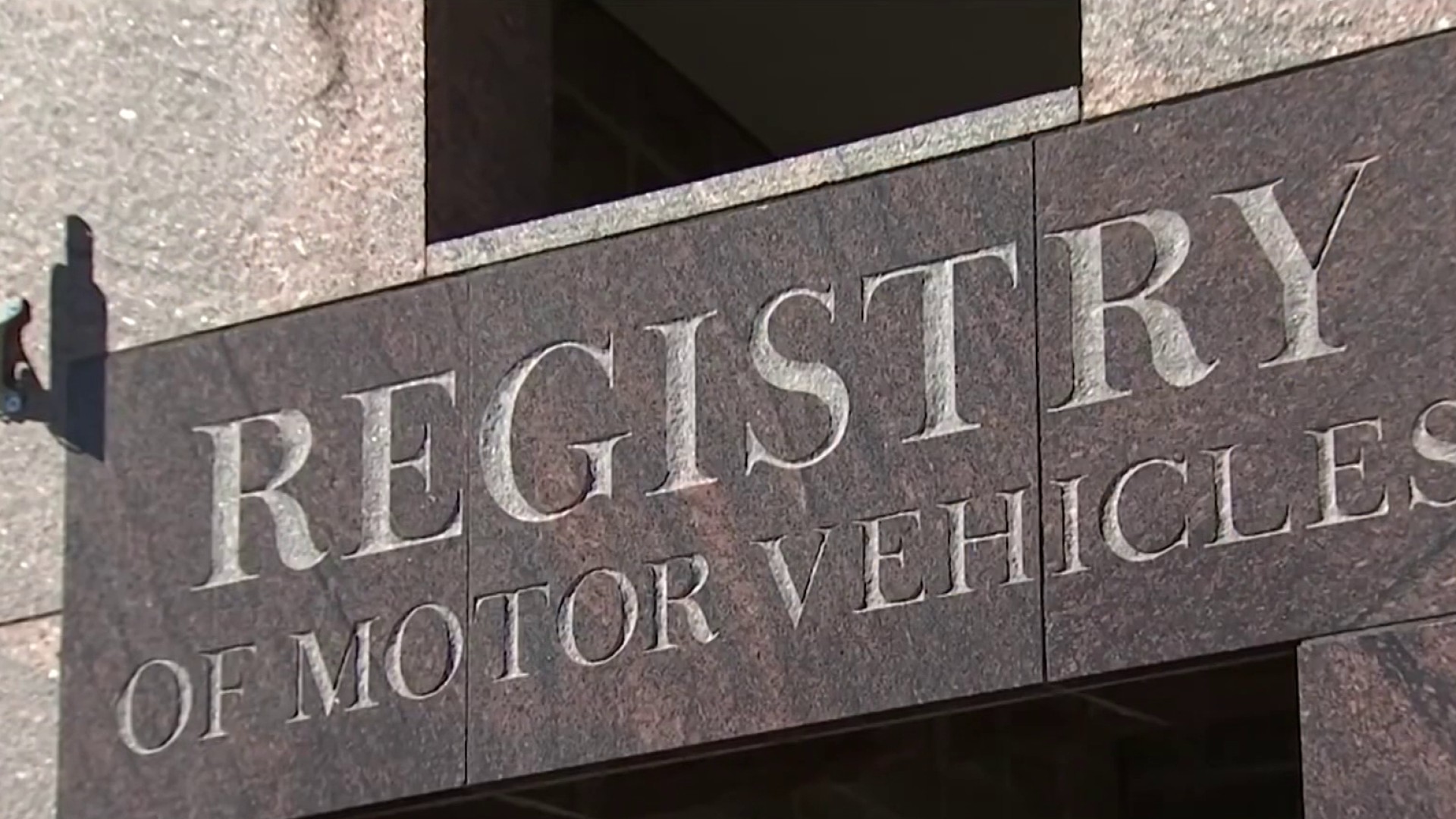
When Massachusetts House and Senate leaders can get most or all of their Democrats on board behind a bill, their supermajority margins render the governor all but inconsequential to what becomes state law. It's ironing out the intraparty disagreements that often proves tougher, and more time-consuming.
Immigration reform advocates and some public safety leaders have pressed, often loudly, for more than a decade to grant residents without legal status in the U.S. some form of access to driver's licenses. Their bills to accomplish that never surfaced for floor votes, but legislative leaders kept the conversations going behind closed doors. This session, having amassed enough votes to steamroll a veto, they went for it.
WATCH ANYTIME FOR FREE
Stream NBC10 Boston news for free, 24/7, wherever you are. |
The votes were there to pass the bill and Democrats in both branches flexed their political muscles in a 24-hour span to cement the licensing bill as law by clearing the two thirds hurdle needed for a veto override.
Even Baker, who argued that allowing immigrants without legal status to apply for standard driver's licenses could spiral into ineligible residents registering to vote, accepted that he was fighting a losing battle.
Get updates on what's happening in Boston to your inbox. Sign up for our News Headlines newsletter.
"I don't see this the same way the House and the Senate see it," Baker said Monday. "That's democracy."
But the decisive roll calls (119-36 in the House and 32-8 in the Senate) may have just triggered the start of a larger fight. Republican gubernatorial candidate Geoff Diehl and lieutenant governor candidate Leah Cole Allen said after Thursday's vote they would back a ballot question asking voters to repeal the new law.
"Leah and I will not sit by idly and watch the consequences of this bill take away the safety and democratic rights of Massachusetts residents. We fully support submitting this question to the people to give them a direct say in their future," Diehl said Thursday without making clear
The calendar could shape the dynamics at play there. State law allows petitioners to bring forth a referendum to strike a newly enacted law if they collect, in this case, 40,120 signatures from Massachusetts voters, of which no more than 10,030 could come from one county, within 90 days after its passage.
If opponents of the new law pursue that action -- and are successful at gathering signatures -- the timing could line up almost perfectly to put the question before voters at the Nov. 8 election. They'd have until Aug. 24 to submit signatures to local election officials for certification and then Sept. 7 to submit them to Secretary of State William Galvin's office.
Otherwise, a more common initiative petition likely could not go before voters until 2024, more than a year after the July 1, 2023 start date on which immigrants without legal status can begin applying for licenses.
A Suffolk University/Boston Globe poll of Massachusetts residents conducted in April found a nearly even split of support and opposition for the licensing idea, an uneasy balance that could get tilted one way or the other once prospective campaigns begin flooding the public sphere.
The override was not the only display of political strength Democrats made this week. Without the support of Republicans who negotiated the final bill, lawmakers began advancing a measure to make mail-in voting and expanded early voting permanent options in Massachusetts.
Both of those ways of casting ballots proved popular and mostly successful as temporary measures during the COVID-19 pandemic, improving voter access despite threats posed by the virus.
Legislators, who often wrap up work at the last minute or blow past deadlines altogether, faced pressure to finalize a bill soon with the Sept. 6 statewide primary less than three months away. The conference committee that took months to produce an accord agreed to give prospective voters 10 more days before an election to register, but they opted against a Senate-approved policy allowing new voters to register and cast a ballot in one trip to the polls. The Senate signed off on the deal and a House vote could come as early as next week.
While GOP lawmakers are not on board, there's a chance Democrats will need to take fewer steps to finalize the elections reform bill than they did the licensing law. Baker in the past has voiced support for broader voting by mail, and he signed both the temporary law and extensions to it during the public health crisis.
Action would put mail-in voting and more early voting days on the table for this fall's elections, but for a majority of the legislators responsible for the bill, it won't make all that much of a difference.
Ninety-two representatives and 16 senators face neither a declared primary nor a general election opponent, essentially granting them a pleasant stroll into another two years in office with next to no campaigning required, no need to answer to their opponents, and none of those candidate debates and Q&A forums.
As a result, millions of voters will have no alternatives in the House and Senate if, say, they are frustrated by wherever their elected legislators land on tax relief, an area where the cloudy outlook has yet to give way to sunshine.
House Speaker Ronald Mariano and Senate President Karen Spilka, as they have for months at this point, said their respective branches continue to deliberate in private about still-in-development tax packages without offering many details beyond a broad promise that the bills would aim to help vulnerable populations.
Sign up for our Breaking newsletter to get the most urgent news stories in your inbox.
Their spending plans for the fiscal year that starts July 1 do not broach the idea of tax relief, though the final fiscal 2023 budget deliberations could revise the state's tax revenue forecast. That surplus-bound outlook is, well, pick your description from the latest batch offered this week: "rosy," as Massachusetts Taxpayers Foundation President Eileen McAnneny put it; "absolutely unprecedented," in the words of MTF's Executive Vice President Doug Howgate; or "just crazy," as Baker told business leaders.
Two conference committees kicked off their work this week, one tasked with resolving major differences between House and Senate sports betting bills and the other assigned with producing a final annual state budget.
Outside of spending levels, the budget talks -- which opened with brief public remarks before moving into private -- will feature some significant policy decisions as well, including a Senate proposal to create new licensing protections for Massachusetts reproductive health and gender-affirming care providers who may face legal challenges originating in other states.
Attorney General Maura Healey implored Bay State employers to think about abortion laws, too, saying that heightened restrictions being put in place in other states could cost billions of dollars in productivity "because it actually affects whether women go to school, stay in school, join the workforce, stay in the workforce, contribute to our economy."
The gubernatorial candidate told business leaders she is among those concerned about the statewide housing shortage and the high costs of living, two days before the man she hopes to succeed in the corner office delivered a similar message dubbing the lack of available and affordable housing an "existential threat."
Whether it's Healey or someone else, the next governor will have their work cut out on a series of intimidating and harrowing obstacles even if the state remains on good fiscal footing. Booming inflation intertwining with a runaway-train housing market have created major struggles for voters, who appear more likely in new polling to have economic issues top of mind.
Opioid overdose deaths reached a new high in 2021, according to data released this week, fueled in part by the widespread presence of fentanyl and the anguish imposed by the pandemic.
"I'm not throwing stones, (but) I filed legislation three years ago, before the pandemic, to significantly shift investments in primary care, addiction services, behavioral health and gerontology because we underfund those things. We always have," Baker told the crowd at a New England Council event. "We still need to do something like that if we really want to get our arms around this."



